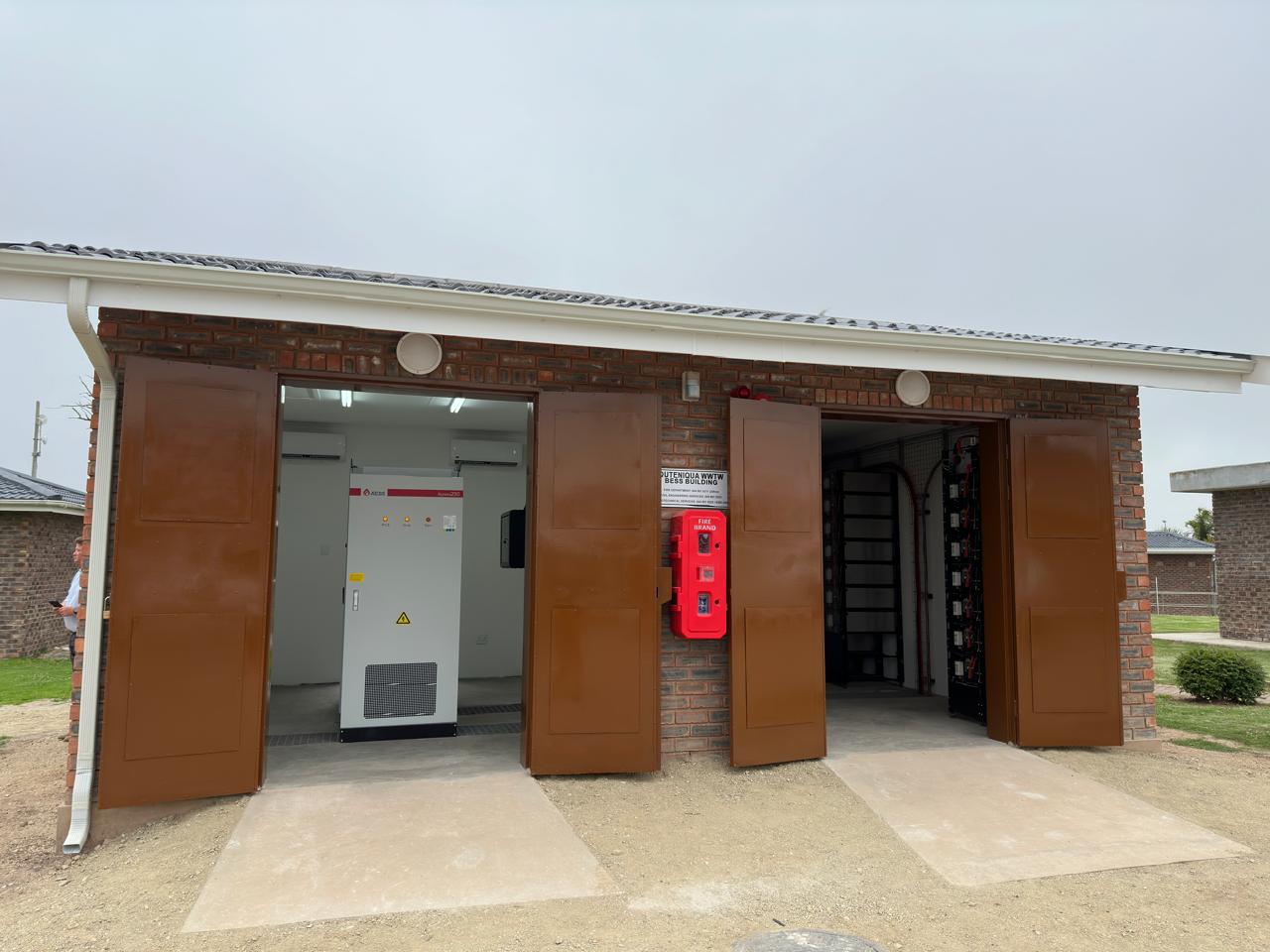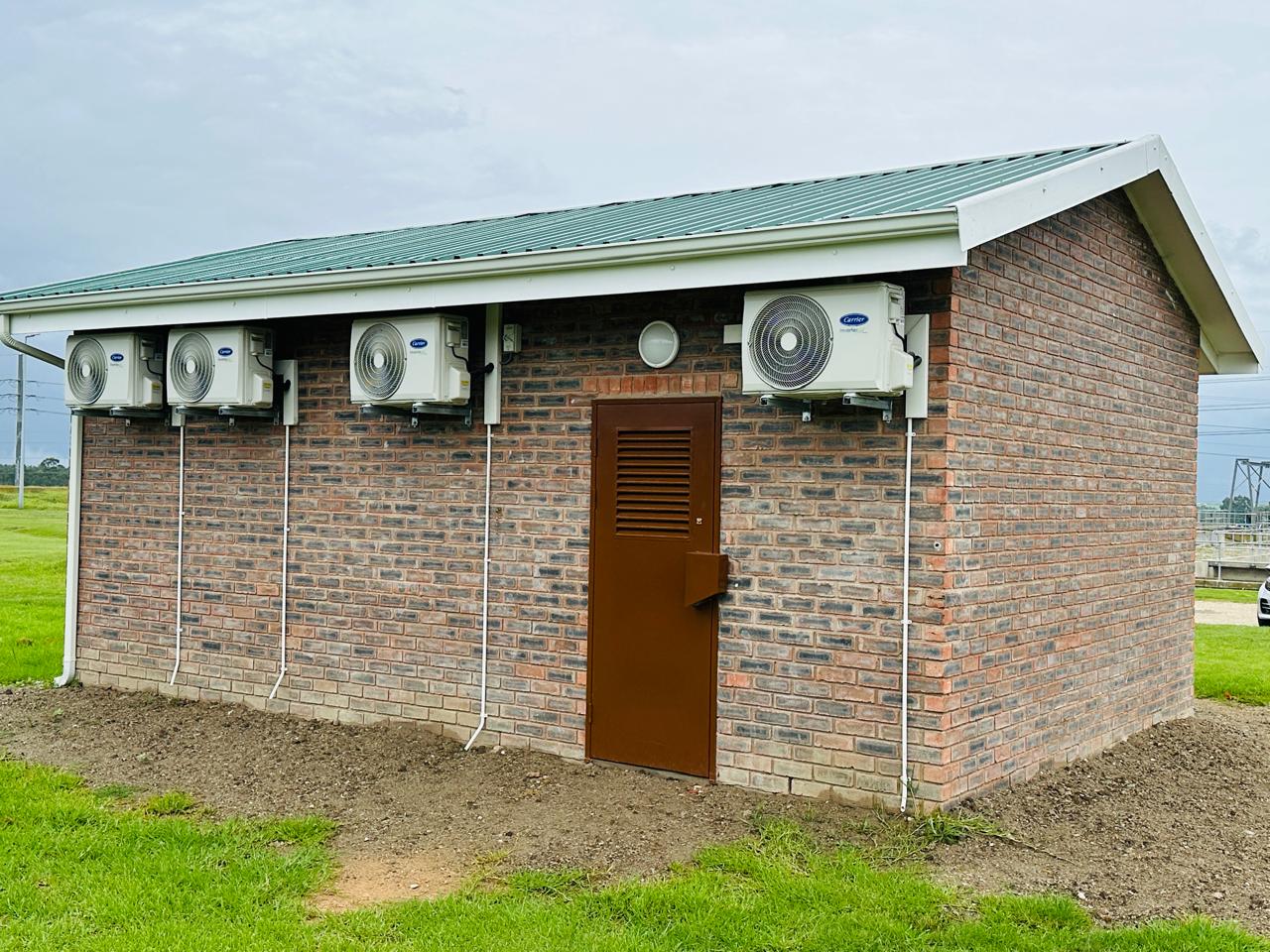George Municipality Enhances Energy Efficiency with Battery Energy Storage Systems

In the photo: Civic Centre While Under Construction
In a major step towards energy efficiency and sustainability, the George Municipality has deployed three Battery Energy Storage Systems (BESS) with a combined capacity of 3MWh to optimise energy consumption. The Municipality’s Electrotechnical Services Department announced this initiative as part of its ongoing efforts to integrate innovative energy solutions into the municipal grid.
According to Daniel Greeff, Deputy Director for Planning and Design in the Electrotechnical Services Department, the BESS units are designed to complement the existing grid-tied PV solar systems within the municipal network. “These systems are strategically distributed based on local demand: a 1MWh BESS is integrated with a 400kWp PV solar system at Outeniqua WWTW, a 400kWh BESS with a 500kWp PV solar system at Gwaing WWTW, and a 1.6MWh BESS with a 300kWp PV solar system at the Municipal Main Offices near the Civic Centre,” Greeff explained.
The primary driver behind this project is the high cost of running diesel generators during loadshedding and unplanned outages. “The Municipality did a feasibility study to determine a cost-saving model for the use of BESS as a primary source of energy during a power interruption, as they have a minimal to zero operational and maintenance cost as compared to the use of diesel generators.”
Reducing Loadshedding Disruptions & Cutting Costs
Beyond mitigating operational disruptions during loadshedding, the BESS units can also be configured for peak shaving—a process that reduces strain on the grid during high-demand periods. By storing energy during off-peak hours, when electricity rates are lower, and discharging it when demand spikes, the systems significantly lower operational costs for the Municipality. This configuration will be deployed during times of no loadshedding.
“Two of the three BESS units are operational and at practical completion stage and caused the generators not to start up during the recent load shedding at these sites, with the Civic Centre system expected to be fully operational by May 2025,” said Greeff.
The recent stage-4 loadshedding provided an early test of the system’s effectiveness, demonstrating its positive impact on energy efficiency. By ensuring stored energy is available for critical infrastructure, the Municipality can now smooth out fluctuations in power usage, prevent grid overloads, and reduce reliance on expensive diesel-generated electricity.
Financial & Environmental Benefits
While the financial investment in these BESS installations is significant, the long-term savings on electricity costs are expected to be substantial. The ability to store off-peak energy for use during high-demand periods minimizes the need to purchase electricity at higher rates. This not only improves the Municipality’s bottom line but also offers greater flexibility and control over energy consumption.
Additionally, the integration of battery storage with PV solar systems supports cleaner, greener energy usage by maximizing renewable energy utilization. This strategic deployment marks a milestone in the Municipality’s energy resilience plan, setting a precedent for future energy storage and management solutions.




